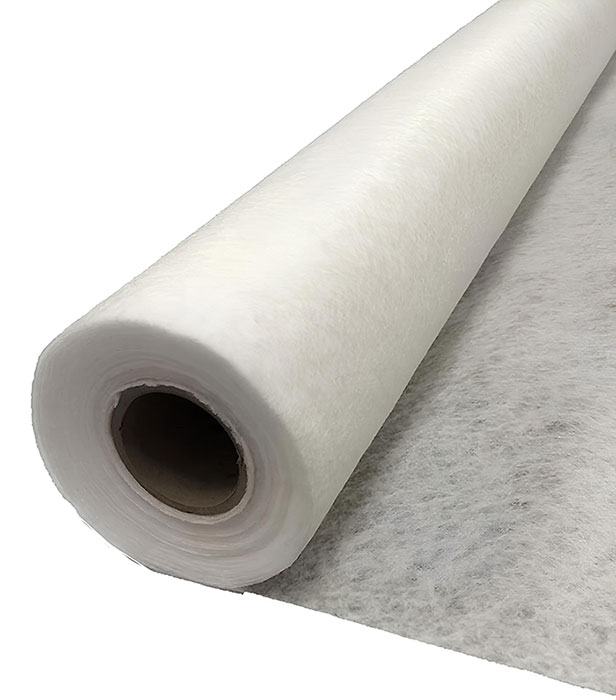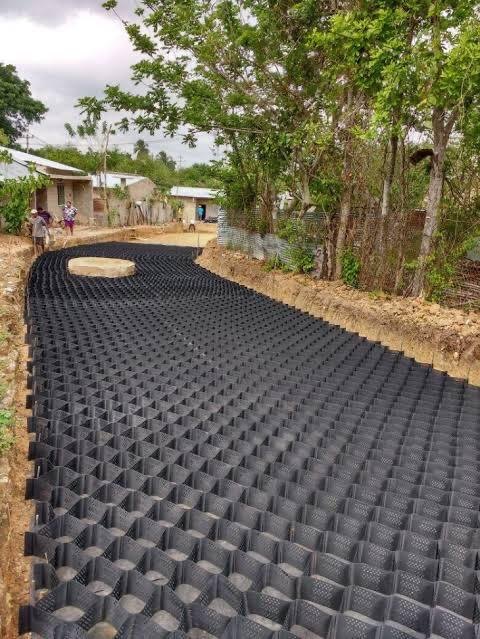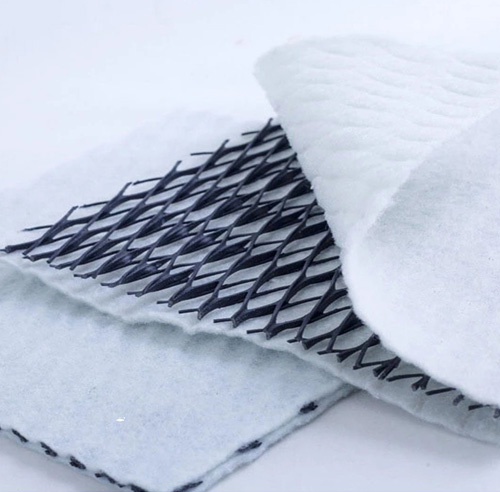Geotextiles: Versatile Solutions for Civil Engineering
Geotextiles: A Foundation for Sustainable Construction
Geotextiles are essential components in modern civil engineering projects. These permeable textile materials are used in conjunction with soil, rock, or other materials to enhance project stability, drainage, and erosion control.
Key Functions of Geotextiles

Separation
Geotextiles prevent the mixing of different soil layers, ensuring proper drainage and stability.

Reinforcement
They reinforce the soil structure, improving its strength and resistance to deformation.

Filtration
Geotextiles allow water to pass through while retaining soil particles, preventing clogging and erosion.

Drainage
They enhance drainage by creating a permeable layer within the soil.

Moisture Barrier
Geotextiles can act as moisture barriers, preventing the movement of water into or out of specific areas.
Geotextiles in Stormwater Management
Geotextile fabrics play a crucial role in optimizing the functionality of soakwells. By preventing clogging, promoting proper drainage, and protecting the surrounding soil from erosion, geotextiles contribute to effective stormwater collection, treatment, and infiltration. This helps to reduce stormwater runoff and mitigate the impacts of flooding.
Our Range of Geotextile Products

Geotextile is any permeable textile material used with foundation, soil, rock, earth, etc. that is an integral part of a constructed project, structure or system. It may be made of synthetic or natural fibers.
It’s made from synthetic polymers – polypropylenes, polysters, polyethylenes and polyamids – which do not decay under biological and chemical process.
Made from synthetic fibers like polypropylene, polyesters, polyethylenes, and polyamids, our geotextiles are durable and resistant to decay.

Geotextile Fabric
Geotextile fabric is a permeable textile material used for soil
stabilization, filtration, drainage, and erosion control. The manufacturing process for geotextile fabric involves:
Fiber Selection
Synthetic fibers such as polyester or polypropylene are commonly used. The facility sources high-quality raw materials suitable for geotextile production.
Web Formation
The fibers are laid down in a web formation process using methods like needle punching, heat bonding, or weaving.
Consolidation
The web of fibers is consolidated through processes such as needle punching, thermal bonding, or chemical bonding to enhance strength and durability.
Finishing
Additional processes like calendaring, coating, or laminating may be applied for specific functionalities or to meet project
requirements.

Geocells
Geocells are three-dimensional honeycomb-like structures made of high-density polyethylene (HDPE). They provide confinement for soil or aggregate materials, creating stable platforms for load support or erosion control. The manufacturing process involves:
Polymer Extrusion
HDPE is extruded into sheets with protruding cells or pockets.
Sheet Welding
The sheets are welded together to form a continuous,
interconnected honeycomb structure.
Panel Cutting
The continuous structure is cut into panels of desired sizes
Folding & Packaging
The panels are folded and packaged for transportation and use.
These 3D honeycomb-like structures, made from high-density polyethylene (HDPE), provide excellent confinement for soil or aggregate materials. They are ideal for load support and erosion control.

Geocomposite
Combinations
- Geotextile + Geogrid
- Geotextile + Geomembrane
- Geomembrane + Geogrid
Functions
- Separation
- Reinforcement
- Filtration
- Drainage
- Moisture Barrier
Combining geotextiles with geogrids or geomembranes, our geocomposites offer a versatile solution for various applications.
Benefits of Using Geotextiles

Enhanced Stability
Geotextiles improve the stability of foundations, slopes, and embankments.

Improved Drainage
They enhance drainage efficiency, preventing waterlogging and erosion.

Reduced Costs
Geotextiles can help reduce long-term maintenance costs by preventing premature failure of structures.

Environmental Benefits
They contribute to sustainable construction practices by reducing the environmental impact of projects.
Choose Our Geotextiles for Quality and Reliability
Our geotextile products are designed to meet the highest industry standards for quality and performance. We offer a wide range of options to suit your specific project needs. Contact us today to learn more about how our geotextiles can benefit your civil engineering projects.


